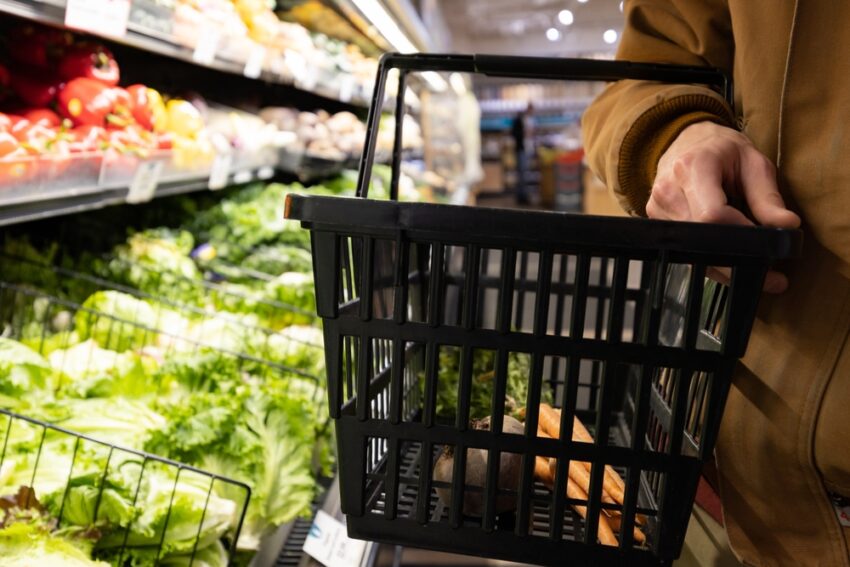Senior executives from the UK’s leading supermarket chains have raised concerns that a potential rise in taxes on the retail sector could drive food prices higher. This warning comes in anticipation of Chancellor Rachel Reeves’ forthcoming budget. The executives have expressed their apprehensions through a collective letter to the Treasury.
The letter, signed by leaders from Tesco, Sainsbury’s, Asda, Morrisons, Aldi, Lidl, Waitrose, M&S, and Iceland, predicts that any increase in business rates or other industry levies will inevitably result in a financial burden for households.
The letter further highlights the possibility of persisting high food inflation into 2026, a consequence of the costs currently imposed on the industry, as well as measures enacted in the last budget. This intervention comes amid rumours that Chancellor Reeves will introduce new tax measures to address a £22 billion deficit in public finances, following the Office for Budget Responsibility’s downgrade of growth forecasts.
Retailers are particularly apprehensive about the government’s proposal for a ‘business rates surtax’ on large commercial properties. This measure is likely to hit supermarkets and distribution centres hardest. According to the proposed changes, smaller shops and hospitality venues with rateable values below £500,000 will see their rates reduced. In contrast, larger premises exceeding this threshold, including major retail outlets and warehouses, will face increased charges.
The British Retail Consortium (BRC), the representative body for the country’s largest grocers, has noted that while large stores account for a small fraction of retail locations, they contribute approximately one-third of the sector’s total business rates. Helen Dickinson, the Chief Executive of the BRC, has argued that retailers are making every effort to keep food prices affordable. However, she asserts, the struggle is uphill, with over £7 billion in additional costs forecasted for 2025 alone. She suggests that preventing any further rise in business rates would be the simplest solution.
Chancellor Reeves is approaching one of the most challenging fiscal tests of her tenure ahead of the Autumn budget on 26 November. Following last year’s £40 billion tax package, which included a hike in employer National Insurance contributions, she assured there would be no further tax increases.
Despite this pledge, the Institute for Fiscal Studies (IFS) warns that weaker growth, higher borrowing costs and unfunded spending commitments will likely necessitate further tax rises. While the Chancellor has suggested that ‘those with the broadest shoulders should pay their fair share’, economists are sceptical about the feasibility of raising sufficient funds through targeted taxes on professional partnerships or wealthy individuals, without implementing broader measures.
The rate of food inflation, which peaked above 19% in 2023, has softened but remains significantly higher than pre-pandemic levels. The Office for National Statistics (ONS) has reported year-on-year price increases of between 12% and 19% for household staples such as butter, milk, chocolate and coffee. Retailers argue that additional fiscal pressures could prolong high prices into 2026, especially in light of global supply shocks, poor harvests, and rising wage costs.
Tesco’s Chief Executive, Ken Murphy, recently stated that ‘enough is enough’ in terms of business taxation and revealed that increased National Insurance contributions have already cost the company £235 million this year. Despite these pressures, Tesco anticipates profits of up to £3.1 billion for the full year, while Lidl reported its pre-tax profits more than tripled to £156.8 million in the year to February.
A representative from the Treasury has stated that keeping inflation under control remains a priority. They highlighted recent measures to reduce business rates for smaller retailers, such as butchers, bakers, and high-street shops, and added that business rates would be adjusted to reflect changes in property values.
The spokesperson explained that the goal is to maintain the same real-term revenue from this system. Thus, even if a property’s valuation rises, its bill could potentially decrease if the tax rate is lowered. Supermarket executives, however, remain concerned about the potential impact on food prices and the resultant strain on households.


